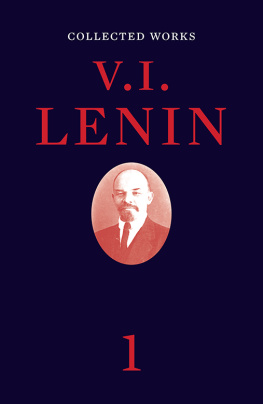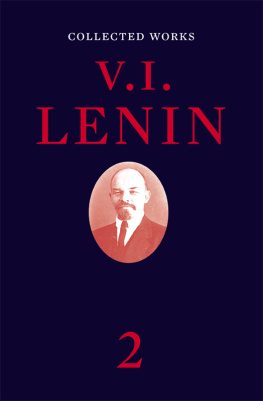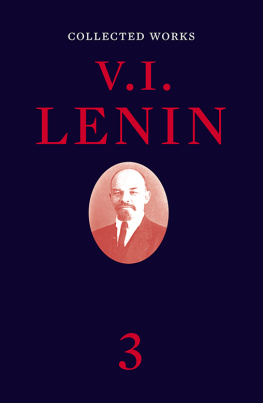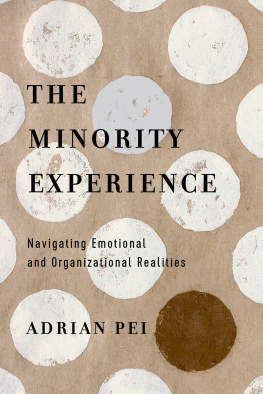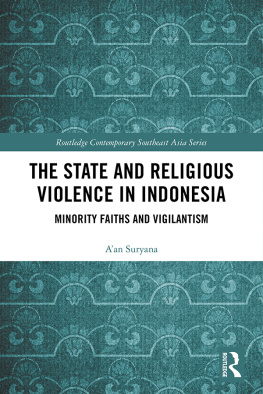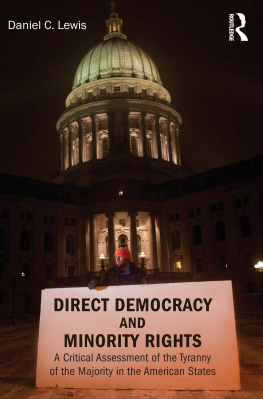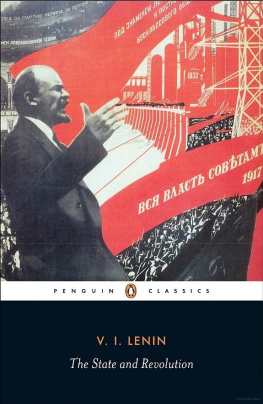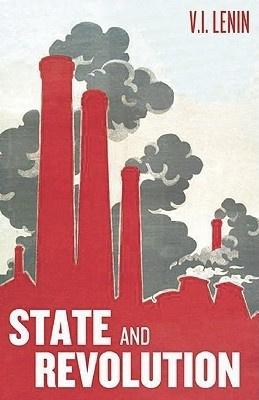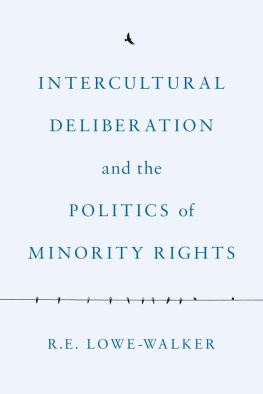V. I. Lenin - The State and Revolution
Here you can read online V. I. Lenin - The State and Revolution full text of the book (entire story) in english for free. Download pdf and epub, get meaning, cover and reviews about this ebook. year: 1917, publisher: Kessinger Publishing, genre: Politics. Description of the work, (preface) as well as reviews are available. Best literature library LitArk.com created for fans of good reading and offers a wide selection of genres:
Romance novel
Science fiction
Adventure
Detective
Science
History
Home and family
Prose
Art
Politics
Computer
Non-fiction
Religion
Business
Children
Humor
Choose a favorite category and find really read worthwhile books. Enjoy immersion in the world of imagination, feel the emotions of the characters or learn something new for yourself, make an fascinating discovery.

The State and Revolution: summary, description and annotation
We offer to read an annotation, description, summary or preface (depends on what the author of the book "The State and Revolution" wrote himself). If you haven't found the necessary information about the book — write in the comments, we will try to find it.
The State and Revolution — read online for free the complete book (whole text) full work
Below is the text of the book, divided by pages. System saving the place of the last page read, allows you to conveniently read the book "The State and Revolution" online for free, without having to search again every time where you left off. Put a bookmark, and you can go to the page where you finished reading at any time.
Font size:
Interval:
Bookmark:
What is now happening to Marx's theory has, in the course of history, happened repeatedly to the theories of revolutionary thinkers and leaders of oppressed classes fighting for emancipation. During the lifetime of great revolutionaries, the oppressing classes constantly hounded them, received their theories with the most savage malice, the most furious hatred and the most unscrupulous campaigns of lies and slander. After their death, attempts are made to convert them into harmless icons, to canonize them, so to say, and to hallow their names to a certain extent for the "consolation" of the oppressed classes and with the object of duping the latter, while at the same time robbing the revolutionary theory of its substance, blunting its revolutionary edge and vulgarizing it. Today, the bourgeoisie and the opportunists within the labor movement concur in this doctoring of Marxism. They omit, obscure, or distort the revolutionary side of this theory, its revolutionary soul. They push to the foreground and extol what is or seems acceptable to the bourgeoisie. All the social-chauvinists are now "Marxists" (don't laugh!). And more and more frequently German bourgeois scholars, only yesterday specialists in the annihilation of Marxism, are speaking of the "national-German" Marx, who, they claim, educated the labor unions which are so splendidly organized for the purpose of waging a predatory war!
In these circumstances, in view of the unprecedently wide-spread distortion of Marxism, our prime task is to re-establish what Marx really taught on the subject of the state. This will necessitate a number of long quotations from the works of Marx and Engels themselves. Of course, long quotations will render the text cumbersome and not help at all to make it popular reading, but we cannot possibly dispense with them. All, or at any rate all they most essential passages in the works of Marx and Engels on the subject of the state must by all means be quoted as fully as possible so that the reader may form an independent opinion of the totality of the views of the founders of scientific socialism, and of the evolution of those views, and so that their distortion by the "Kautskyism" now prevailing may be documentarily proved and clearly demonstrated.
Let us being with the most popular of Engels' works, The Origin of the Family, Private Property and the State, the sixth edition of which was published in Stuttgart as far back as 1894. We have to translate the quotations from the German originals, as the Russian translations, while very numerous, are for the most part either incomplete or very unsatisfactory.
Summing up his historical analysis, Engels says:
"The state is, therefore, by no means a power forced on society from without; just as little is it 'the reality of the ethical idea', 'the image and reality of reason', as Hegel maintains. Rather, it is a product of society at a certain stage of development; it is the admission that this society has become entangled in an insoluble contradiction with itself, that it has split into irreconcilable antagonisms which it is powerless to dispel. But in order that these antagonisms, these classes with conflicting economic interests, might not consume themselves and society in fruitless struggle, it became necessary to have a power, seemingly standing above society, that would alleviate the conflict and keep it within the bounds of 'order'; and this power, arisen out of society but placing itself above it, and alienating itself more and more from it, is the state."
(pp.177-78, sixth edition)
This expresses with perfect clarity the basic idea of Marxism with regard to the historical role and the meaning of the state. The state is a product and a manifestation of the irreconcilability of class antagonisms. The state arises where, when and insofar as class antagonism objectively cannot be reconciled. And, conversely, the existence of the state proves that the class antagonisms are irreconcilable.
It is on this most important and fundamental point that the distortion of Marxism, proceeding along two main lines, begins.
On the one hand, the bourgeois, and particularly the petty-bourgeois, ideologists, compelled under the weight of indisputable historical facts to admit that the state only exists where there are class antagonisms and a class struggle, "correct" Marx in such a way as to make it appear that the gate is an organ for the reconciliation of classes. According to Marx, the state could neither have arisen nor maintained itself had it been possible to reconcile classes. From what the petty-bourgeois and philistine professors and publicists say, with quite frequent and benevolent references to Marx, it appears that the state does reconcile classes. According to Marx, the state is an organ of class rule, an organ for the oppression of one class by another; it is the creation of "order", which legalizes and perpetuates this oppression by moderating the conflict between classes. In the opinion of the petty-bourgeois politicians, however, order means the reconciliation of classes, and not the oppression of one class by another; to alleviate the conflict means reconciling classes and not depriving the oppressed classes of definite means and methods of struggle to overthrow the oppressors.
For instance, when, in the revolution of 1917, the question of the significance and role of the state arose in all its magnitude as a practical question demanding immediate action, and, moreover, action on a mass scale, all the Social-Revolutionaries and Mensheviks descended at once to the petty-bourgeois theory that the "state" "reconciles" classes. Innumerable resolutions and articles by politicians of both these parties are thoroughly saturated with this petty-bourgeois and philistine "reconciliation" theory. That the state is an organ of the rule of a definite class which cannot be reconciled with its antipode (the class opposite to it) is something the petty-bourgeois democrats will never be able to understand. Their attitude to the state is one of the most striking manifestations of the fact that our Socialist- Revolutionaries and Mensheviks are not socialists at all (a point that we Bolsheviks have always maintained), but petty-bourgeois democrats using near-socialist phraseology.
On the other hand, the "Kautskyite" distortion of Marxism is far more subtle. "Theoretically", it is not denied that the state is an organ of class rule, or that class antagonisms are irreconcilable. But what is overlooked or glossed over is this: if the state is the product of the irreconcilability of class antagonisms, if it is a power standing above society and "alienating itself more and more from it", it is clear that the liberation of the oppressed class is impossible not only without a violent revolution, but also without the destruction of the apparatus of state power which was created by the ruling class and which is the embodiment of this "alienation". As we shall see later, Marx very explicitly drew this theoretically self-evident conclusion on the strength of a concrete historical analysis of the tasks of the revolution. And as we shall show in detail further on it is this conclusion which Kautsky has "forgotten" and distorted.
Engels continues:
"As distinct from the old gentile [tribal or clan] order, the state, first, divides its subjects according to territory...."
This division seems "natural" to us, but it costs a prolonged struggle against the old organization according to generations or tribes.
"The second distinguishing feature is the establishment of a public power which no longer directly coincides with the population organizing itself as an armed force. This special, public power is necessary because a self-acting armed organization of the population has become impossible since the split into classes.... This public power exists in every state; it consists not merely of armed men but also of material adjuncts, prisons, and institutions of coercion of all kinds, of which gentile [clan] society knew nothing...."
Font size:
Interval:
Bookmark:
Similar books «The State and Revolution»
Look at similar books to The State and Revolution. We have selected literature similar in name and meaning in the hope of providing readers with more options to find new, interesting, not yet read works.
Discussion, reviews of the book The State and Revolution and just readers' own opinions. Leave your comments, write what you think about the work, its meaning or the main characters. Specify what exactly you liked and what you didn't like, and why you think so.

